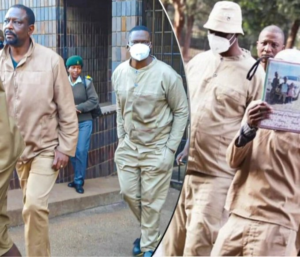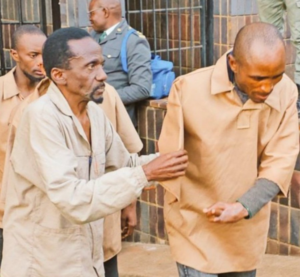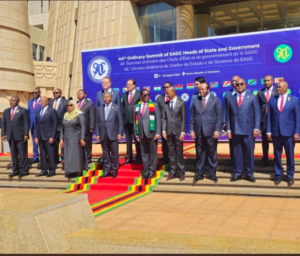EXTRAORDINARY SADC SUMMIT: A CRUCIAL JUNCTURE FOR ZIMBABWE’S POLITICAL FUTURE

In a pivotal move, the Southern African Development Community (SADC) is convening an extraordinary summit of heads of state and government concerning Zimbabwe on Wednesday. The summit, hosted under the aegis of the current SADC Chairperson, Angolan President João Lourenço, carries significant political ramifications for Zimbabwe and its President, Emmerson Mnangagwa. This exclusive insight was provided by The NewsHawks, who has been closely monitoring the nuanced political developments surrounding this matter.
The impending special meeting trails a series of intense regional consultations sparked by the contested elections in Zimbabwe held on 23/24 August. The electoral discord has exacerbated existing divisions not only within Zimbabwe but also among the regional and global community. This division is deep-seated amidst the backdrop of the escalating economic downturn in Zimbabwe.
Exclusive documents secured by The NewsHawks from Zimbabwe’s Ministry of Foreign Affairs and International Trade, and the SADC headquarters in Gaborone, Botswana, shed light on the meticulous preparations for the upcoming summit. A communication issued on 19 October 2023 by the SADC troika organ on politics, defence, and security cooperation director, Professor Kula Ishmael Theletsane, outlined the schedule of the virtual meeting slated for 25 October 2023 from 10 am to 1 pm.
With its headquarters nestled in Gaborone, the current chair of SADC being Angola, the regional bloc is steadfastly manoeuvring the complex political terrain. Key officials like Pearson Chigiji and Isabelle Lemba, representing Zimbabwe and Zambia’s foreign affairs ministries respectively, have been apprised of the meeting’s agenda.
The summit, as per the draft agenda, will delve into various crucial matters including the recent SADC mission in the Democratic Republic of Congo (DRC) and its approved budget. Moreover, the outcomes of the meeting of the quadripartite’s chiefs of defence convened by the African Commission on 6 October 2023 in Addis Ababa, Ethiopia, will also be on the table for discussion.
Though the agenda explicitly mentions an update on DRC, it is the turbulent political landscape of Zimbabwe that catalysed the convening of this extraordinary summit. SADC leaders are tackling the Zimbabwean quandary with a blend of caution and resolve, indicative of the intricate geopolitical dynamics at play.
The simmering discontent following Zimbabwe’s disputed elections has resonated not only among its populace, who grapple with economic hardships daily, but has also echoed across regional and global corridors of power. Notably, South African President Cyril Ramaphosa has been engaging in covert dialogues with Mnangagwa, reflecting deep-seated concerns over the ripple effects of Zimbabwe’s prolonged crisis on South Africa, especially as it gears up for consequential elections next year.
The exodus of about four million Zimbabweans fleeing the political and economic turmoil at home has exacerbated immigration issues in South Africa, further fuelling the urgency of the situation. Internationally, the electoral discord in Zimbabwe has garnered attention in forums such as the United Kingdom’s House of Lords and even in distant nations like Russia, known for its autocratic governance.
At the heart of the electoral dispute in Zimbabwe are allegations of blatant voter suppression and manipulation orchestrated by the ruling party, Zanu PF, led by President Mnangagwa. Opposition leader Nelson Chamisa vehemently dubbed the electoral process, overseen by a Central Intelligence Organisation-controlled entity, as a “gigantic fraud”, painting a grim picture of Zimbabwe’s democratic landscape.
As the SADC leaders converge virtually to deliberate on these pressing issues, the eyes of the region and the world will be keenly fixed on the outcomes of this summit. The discussions and resolutions emanating from this meeting could potentially chart a new political trajectory for Zimbabwe, impacting not only its citizens but resonating across the southern African region and beyond.




